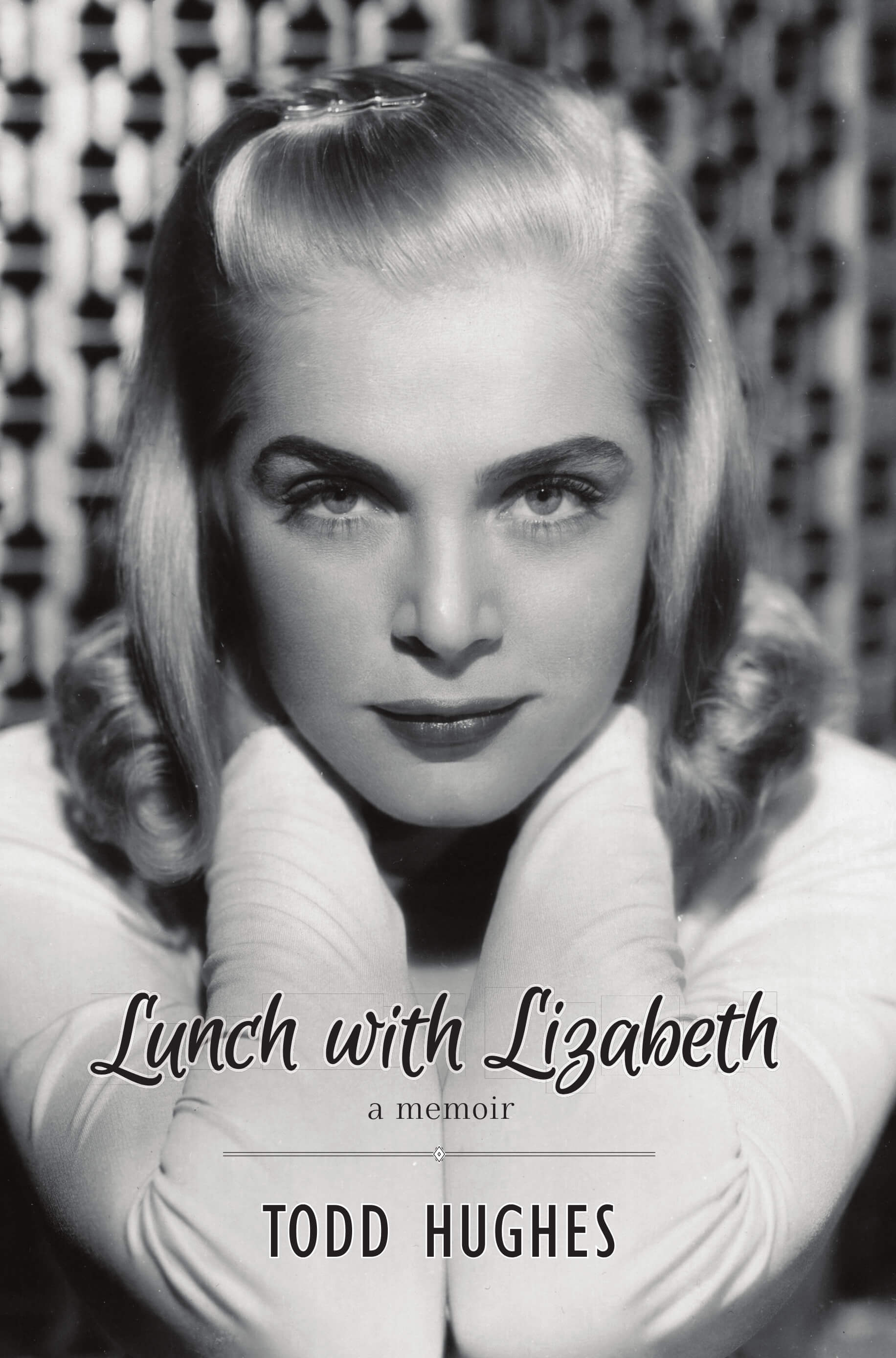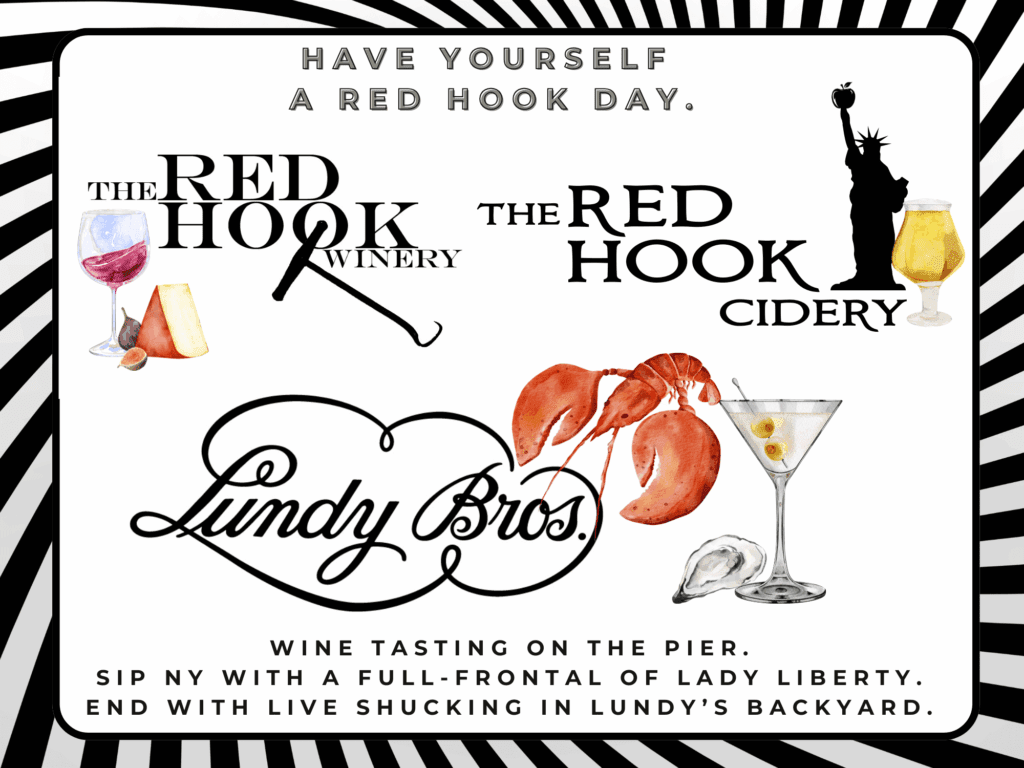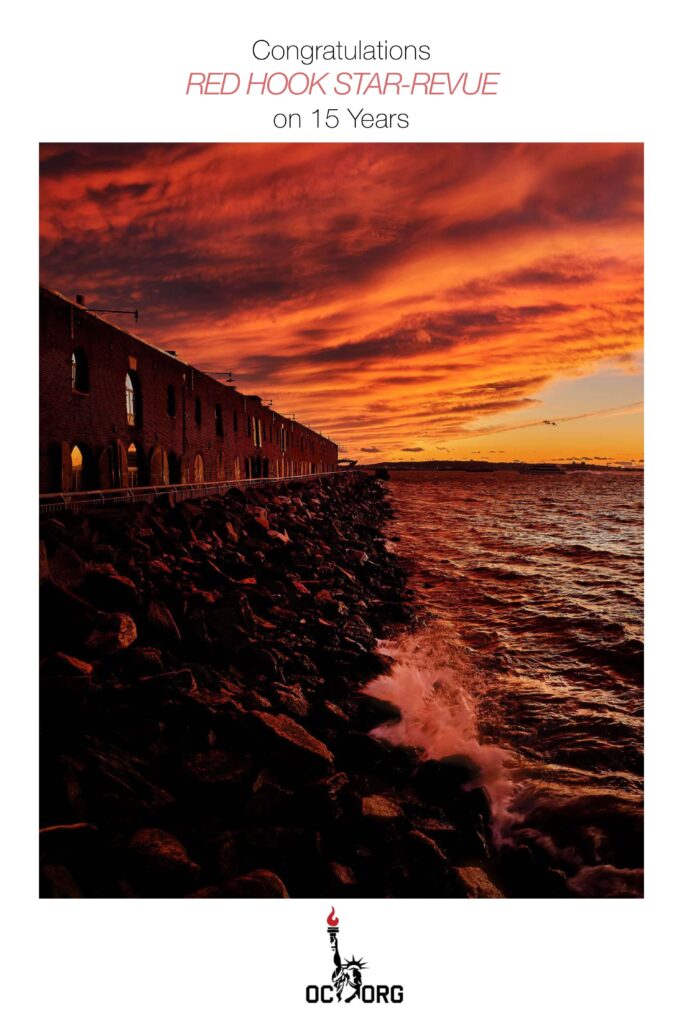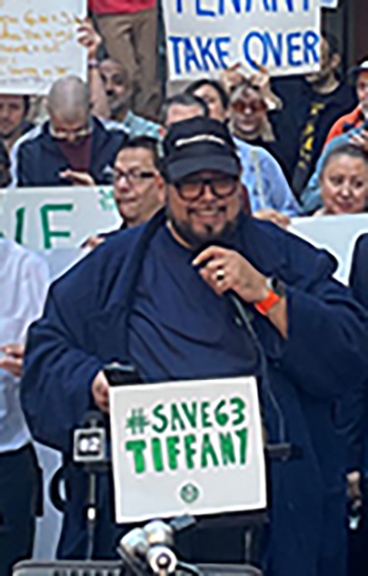Review of Lunch with Lizabeth, by Todd Hughes
Review by Michael Quinn
Falling in love happens differently for everyone. Cupid picks up his bow and sometimes shoots an arrow where you’d never expect it to land. In the 1980s, gay filmmaker Todd Hughes fell head over heels for a femme fatale. She had him from hello—a sultry one spoken on the silver screen. Humphrey Bogart wasn’t the only one seduced by her waved blond hair, dark eyebrows, and intense gaze. Who was this actress from Hollywood’s golden age? Leaving the theater in a daze, Hughes couldn’t believe he had never heard of her. He was determined to discover everything about her.
Hughes’ memoir Lunch with Lizabeth documents not only his obsession with American actress Lizabeth Scott (1922-2015), but the real-life, decades-long friendship that grew out of it. Drawing from “a copious clipping file,” Hughes uses publicity photos, personal notes, transcripts of conversations, and an analysis of some of Lizabeth’s best roles to create a loving, fascinating, portrait.
Hughes was born in 1963 in Claremont, California. As a teenager, taken by the glamour of nearby Tinseltown, he stalks Lauren Bacall on location (“Get lost!” she growls). He attends college in New York, but gets his real education at the movies. Legendary film houses such as the Thalia and the Regency Theater introduce him to film noir. The genre’s defining features—dramatic lighting, hard-boiled men, and double-crossing dames— “captivated me from the start. It was so American. So all or nothing, so black and white, so glamorous and dangerous and depraved.”
Once Hughes sees Lizabeth onscreen, it’s over. He’s obsessed. He combs places like Movie Star News on West 18th Street for photos and snippets of information. Born Emma Matzo in Scranton, Pennsylvania, Lizabeth was sometimes dismissed as “a second-rate Lauren Bacall” (they were both former models with deep voices and no-nonsense personas). Lizabeth’s career was unusual in that she wasn’t contracted to a studio but to independent producer Hal. B. Wallis, who made her a rich woman: In the ’40s and ’50s, Lizabeth seduced the likes of Burt Lancaster, Robert Mitchum, and Charlton Heston onscreen. Off-screen, she was rumored to be a lesbian. A $2.5 million libel lawsuit ended in a mistrial and soured her on the business.
After college, Hughes, rejected from film school, moves to Hollywood and waits tables, living in a bungalow plastered with Lizabeth’s photo. He soon discovers that the reclusive actress is alive and well, zipping around town in her green Jaguar. He tracks down her address and writes a long, ardent letter, offering to write her biography.
That earnestness pays off: Lizabeth writes back. They meet for lunch at a restaurant of her choosing (“long past its glory”) where, at 75, she can still play the great lady. “Surely you can do better than this,” she tells the maître d’ about the table he escorts them to.
Over time, Lizabeth admits to being a control freak and sets strict boundaries for when and how Hughes can contact her, sharing only her “business line” (which turns out to be her home phone with an answering machine). Hughes analyzes the notes she sends for clues about her feelings. First they’re typed, then handwritten. She closes “as ever,” “best,” and finally, “love.” “That was a big word for me to receive from her,” Hughes writes.
He has endless questions but lets Lizabeth set the pace: “I could say where I wanted to go but always let her steer. When she stepped on the gas it was always a wild ride. When she applied the brakes, we came to a stop.” Lunch with Lizabeth traces not only the milestones in Lizabeth’s career, but in Hughes’ enshrining of it: first in AOL chat rooms, then on different websites that he starts building on the still-new internet. Sitting side by side with Lizabeth in “their” booth, Hughes shows her the website he’s made for her on his laptop. “How lucky I am that you chose me,” she says. Yet their friendship is tested when he sends Lizabeth the script to a film he’s written with a part for her in mind. She begs him not to make it, calling it “mediocre”—a huge blow. But Hughes never gives up on the things he loves—or the people.
Lunch with Lizabeth is marked by Hughes’ devotion, tenacity, and optimism. Even if you’ve never heard of Lizabeth Scott (I hadn’t), you’ll get interested in her (I have). Should you find yourself obsessed, you’ll be in good company. Blame it on the business end of Cupid’s arrow.
Author
Discover more from Red Hook Star-Revue
Subscribe to get the latest posts sent to your email.










